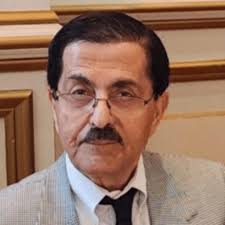Maintaining muscle health is crucial for overall well-being and quality of life. Healthy muscles not only enable movement and strength but also contribute to better posture, balance, and metabolism. Dr sudipta mohanty BOSTON a recognized expert in muscle wellness, shares essential tips for improving muscle strength and endurance. Whether you’re a fitness enthusiast or simply looking to maintain your muscle health, these tips can help you achieve long-lasting results.
1. Embrace Consistent Strength Training
Strength training is the foundation of muscle health. Dr. Mohanty emphasizes that regular resistance exercises are key to building and maintaining muscle mass. Engaging in strength training two to three times a week helps stimulate muscle growth, boosts strength, and prevents muscle loss as you age.
Incorporate exercises such as weightlifting, resistance band exercises, or bodyweight movements like squats and push-ups into your routine. Aim for a variety of exercises that target different muscle groups to ensure overall muscle development and balance. By consistently challenging your muscles, you ensure they remain strong and resilient.
2. Focus on Progressive Overload
To make continued progress, Dr. Mohanty advises focusing on progressive overload in your workouts. Progressive overload means gradually increasing the intensity of your exercises over time—whether by increasing the weight, reps, or sets of your exercises. This approach challenges your muscles and encourages them to grow and adapt.
However, it’s important not to rush the process. Dr. Mohanty suggests making gradual increases in intensity to avoid injury and allow muscles adequate time to recover and grow stronger. Tracking your progress and adjusting your routine accordingly will help you maintain steady improvements in muscle strength and endurance.
3. Prioritize Recovery and Rest
Rest is just as important as exercise when it comes to muscle health. Dr sudipta mohanty BOSTON points out that muscles grow and repair during periods of rest, not while exercising. Therefore, giving your muscles adequate time to recover is essential for preventing injury and ensuring optimal muscle growth.
Aim for at least one rest day between strength training sessions targeting the same muscle group. Getting 7-9 hours of quality sleep each night is also crucial, as sleep is when your body releases growth hormones that facilitate muscle recovery.
4. Fuel Your Body with Proper Nutrition
Nutrition plays a vital role in muscle health. Dr. Mohanty stresses the importance of consuming a balanced diet rich in protein, healthy fats, and complex carbohydrates to support muscle growth and recovery. Protein, in particular, is crucial for repairing muscle fibers that break down during exercise.
Dr. Mohanty recommends consuming protein from a variety of sources, including lean meats, fish, eggs, dairy, legumes, and plant-based proteins like tofu and quinoa. For muscle repair and growth, aim for approximately 1.2 to 2.0 grams of protein per kilogram of body weight daily. Adequate carbohydrate intake is also important to provide the energy required for intense workouts.
5. Stay Hydrated for Optimal Performance
Hydration is often overlooked but is critical for maintaining muscle function. Dehydration can lead to muscle cramps, fatigue, and slower recovery times. Dr. Mohanty suggests drinking water consistently throughout the day, particularly before, during, and after workouts.
Electrolyte-rich drinks may also help replenish lost minerals, especially after intense exercise sessions. Staying hydrated ensures your muscles have the fluid they need for proper contraction, relaxation, and recovery.
6. Incorporate Cardiovascular Exercise
Cardiovascular exercise complements strength training by improving circulation, delivering oxygen and nutrients to your muscles, and supporting overall heart health. Dr. Mohanty encourages incorporating cardio activities like walking, cycling, or swimming into your fitness routine.
While cardio alone won’t build muscle mass, it helps improve endurance and supports muscle recovery by enhancing blood flow. It’s essential to find a balance between strength training and cardiovascular exercises to promote both strength and endurance.

